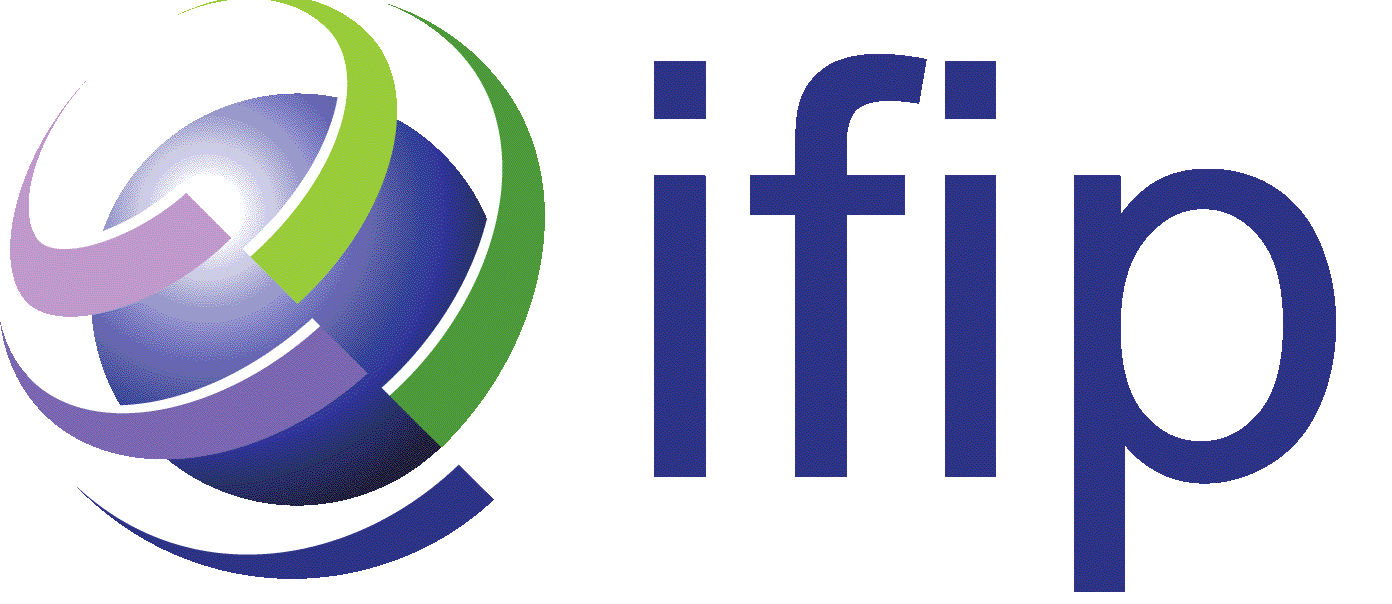The 9th IFIP WG 1.8 Workshop on Trends in Concurrency Theory
September 5, 2020, Online
A satellite event of CONCUR 2020

Description
TRENDS 2020 is an event organised by IFIP WG 1.8 on Concurrency Theory. It aims at bringing together researchers interested in Concurrency Theory and its applications, to exchange ideas and discuss recent trends and open problems. The event will take place on September 5, 2020 and will consist of three invited talks. It will be associated with the yearly WG 1.8 business meeting.
Invited Speakers
-
Kostas Chatzikokolakis, University of Athens, GR
Title: Refinement relations for quantitative information flow
Quantitative Information Flow (QIF) studies flows of information caused by the correlation between secret data and observable outputs, allowing an adversary to make inferences about sensitive information. The study is made particularly challenging by the fact that perfection is often unachievable, in that some undesirable flows have to be accepted for functional or practical reasons. The QIF theory provides systematic approaches to quantifying such information “leaks” in operationally significant ways, and then bounding them, both with respect to the benefit of an attacking adversary and by comparisons between alternative implementations.
In this talk I will start with an introduction to the QIF theory. Then, I will discuss refinement relations, that is methods to establish that a system B never leaks more than a system A in a variety of different adversarial scenarios. This allows us, for instance, to replace A by a newer version B, without the risk of weakening the system’s security & privacy, and without restricting the analysis to a particular adversary.
-
Gustavo Petri, ARM, UK
Title: Armour: Software Defined Security Policies for Networked Systems
In this talk I will present Armour, a language-based approach to enforcing global security policies on networked-systems. Armour provides security for multi-tenant and mutually distrusting micro-services. The benefit of Amour is that policies can be specified at a global level, and the Armour implementation ensures the correct enforcement of a global policy. I will show the design and implementation of Armour, and I will conclude with exciting open problems in this domain.
-
Ana Sokolova, University of Salzburg, AT
Title: Tracing Probability and Nondeterminism
The combination of probability and nondeterminism has been difficult to tackle and subject to a significant body of work in the past couple of decades, especially regarding understanding trace semantics. In recent work, joint with Filippo Bonchi and Valeria Vignudelli, we have managed to give a thorough and yet easy answer to the problem of combining probability and nondeterminism, which further enabled us to develop a theory of traces. This work is a nice example of the interplay between algebra and coalgebra: Systems and automata (with nondeterminism and probability) are coalgebras, but their behaviour is algebraic as we reveal in this work.
In the talk I will show how different trace semantics for systems with probability and nondeterminism can be recovered by instantiating a coalgebraic construction known as generalised determinisation. We characterise and compare the resulting semantics to known definitions of trace equivalences appearing in the literature. Most of our results are based on the exciting interplay between monads and their presentations via algebraic theories.
Programme
09:00-10:00 Invited Talk: Ana Sokolova, Tracing Probability and Nondeterminism
10:00-11:00: Invited Talk: Gustavo Petri, Armour: Software Defined Security Policies for Networked Systems
11:00-11:30 Break
11:30-12:30: Invited Talk: Kostas Chatzikokolakis, Refinement relations for quantitative information flow
14:00-15:00 WG 1.8 business meeting
Participation
Participation, both to the workshop and to the IFIP WG 1.8 meeting, is open to everybody. For registration, please consult the CONCUR 2020 registration page.
Organizers
Ilaria Castellani (INRIA Sophia Antipolis, France)
Mohammad Mousavi (University of Leicester, UK)
IFIP WG 1.8 on Concurrency Theory
The aims of IFIP WG 1.8 on Concurrency Theory are:
-
To develop theoretical foundations of concurrency, exploring frontiers of existing theoretical models like process algebra and process calculi, so as to obtain a deeper theoretical understanding of concurrent and parallel systems.
-
To promote and coordinate the exchange of information on concurrency theory, by sharing ideas, discussing open problems, and identifying future directions of research in the area.
The activities of this WG encompass all aspects of concurrency theory and its applications.
More information on IFIP WG 1.8 can be found on its home page.
History
The first instalment of TRENDS (TRENDS 2012) was held on September 8, 2012 as a satellite event of CONCUR 2012, in Newcastle upon Tyne, UK.
The second instalment of TRENDS (TRENDS 2013) was held on August 31, 2013 as a satellite event of CONCUR 2013, in Buenos Aires, Argentina.
The third instalment of TRENDS (TRENDS 2014) was held on September 6, 2014 as a satellite event of CONCUR 2014, in Rome, Italy.
The fourth instalment of TRENDS (TRENDS 2015) was held on September 6, 2015 as a satellite event of CONCUR 2015, in Madrid, Spain.
The fifth instalment of TRENDS (TRENDS 2016) was held on August 27, 2016 as a satellite event of CONCUR 2016, in Quebec City, Canada.
The sixth instalment of TRENDS (TRENDS 2017) was held on September 9, 2017 as a satellite event of CONCUR 2017, in Berlin, Germany
The seventh instalment of TRENDS (TRENDS 2018) was held on September 8, 2018 as a satellite event of CONCUR 2018, in Beijing, China
The eighth instalment of TRENDS (TRENDS 2019) was held on August 31, 2019 as a satellite event of CONCUR 2019, in Amsterdam, The Netherlands